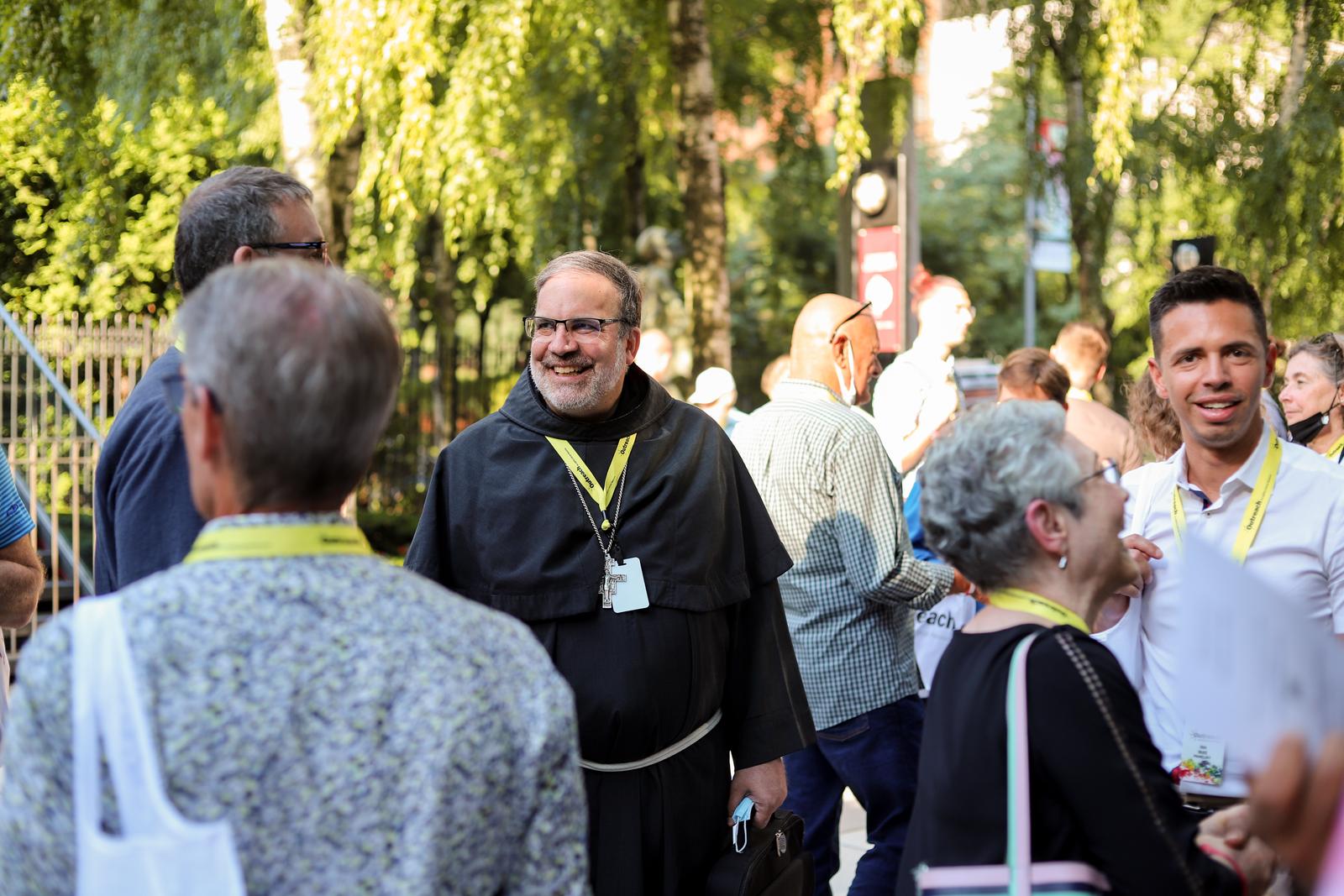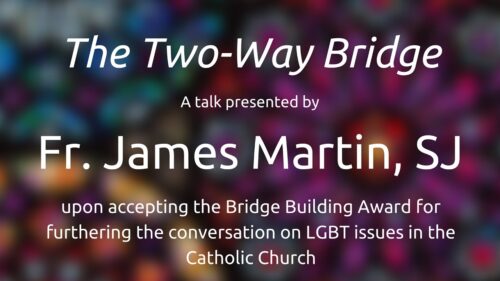Pope Francis’ departure from this life on Easter Monday allows our remembrances of this great pastor to be more hope-filled than somber. We gratefully remember this pastor who taught and showed us that the church is called to be ever more inclusive. His oft-repeated phrase, “todos, todos, todos,” referred to questions about membership in the church, recipients of God’s mercy, and was usually in response to those who felt entitled to limit the scope of God’s all-inclusive love.
The provocative question from early in his pontificate, “Who am I to judge?” will long be remembered as Pope Francis’ indication of a new opening to LGBTQ issues in the church. Clearly there were many whose expectations were raised by this phrase only to be disappointed by the lack of a definitive change in church teaching. But I think Pope Francis knew very well that the walk must come before the talk; that is, new attitudes of inclusion and lived experience will lead to new ways of reflecting upon that experience and new ways of formulating the questions and answers that arise.
Francis was sometimes criticized for his quick quips because they could mislead or had not been thought through when uttered. But the seemingly off-hand remarks often resonated, stirred discussion, and provided food for reflection. “Who am I to judge?” certainly did all of that.
Pope Francis knew very well that the walk must come before the talk.
The question, posed by the one whose “judgment” actually was being sought, is rather suggestive. His reply to the reporter’s question revealed that he looked at the whole person first, with their life of faith and desire to live that faith, and that he leaves any judgment to the All Merciful One. It also implies a critique of those people of faith who somehow believe that they are able to judge another’s standing before God.
Consistent with his Ignatian formation, Pope Francis begins with the cura personalis, the concern for the person, before looking at the class or category to which one belongs. Pope Francis sought to form pastors ready to accompany people and discern with them how to be better disciples; again, the walk must come before the talk. He wanted everyone to be able to seek direction from pastors and pastoral ministers without fear of condemnation and he promoted the importance of truly listening as the first step of discernment.
From his first introduction to the world on the night of his election, he described himself as having been brought from the “ends of the earth” to Rome. In that simple phrase, he indicated the perspective he would bring as universal shepherd, one who comes from the margins and who pays attention to those on the peripheries. His references to the marginalized were very broad and inclusive and he certainly came to know how marginalized LGBTQ persons could be in the church.
In 2015, when Pope Francis came to the United States, he instructed bishops to proclaim the Risen Christ and to share the message of God’s mercy with everyone. More pointedly, he said that everything we say and do should convey mercy. The following year he proclaimed a Year of Mercy and called us to be creative in outreach towards those who feel excluded from the church.
Everything we say and do should convey mercy.
It was precisely because of that call to go to the margins and convey God’s mercy that I first accepted, in the Year of Mercy, the invitation to speak to a New Ways Ministry conference. I was not at all surprised to find an audience of fervent believers formed in the richness of our Catholic faith, who were eager to hear a word of affirmation and to know that they are seen and cared for. I found that a simple reflection on Jesus’ actions on the margins, and the criticism he received, resonated profoundly with this LGBTQ community and their loved ones.
When I was hit with an avalanche of emails from across the country and beyond, demanding to know whether I proclaimed solid church teaching when addressing New Ways, I had no difficulty in affirming that I had. I believe that what they were really asking was whether I pronounced judgment on their “lifestyle” and whether I reiterated the condemnation of sexual activity outside of sacramental marriage. But this audience was all too familiar with the catechism’s description of homosexual acts as gravely sinful and disordered, but they hadn’t heard nearly enough of the same catechism’s affirmation of their dignity as beloved children of God who should be protected from discrimination.
It did not take long before I received an inquiry from the nunciature, noting the complaints that had been received about my speaking engagement. I prayed about the content of that letter and about what kind of response it required. I wondered whether I was to take it as a “warning” to back away and never do this again, or as an opportunity to explain and/or defend myself, or simply to inform me that I was being noticed. My discernment led me to respond straightforwardly and describe how I was doing exactly what Pope Francis had called for in the Year of Mercy. This was affirmed by the nuncio with words of gratitude. But the far greater gratitude came from many LGBTQ Catholics who simply felt seen, acknowledged and affirmed in their dignity and their pilgrimage of faith.
Pope Francis inspired me to take a risk; more importantly, Pope Francis inspired me to deeply listen.
Pope Francis inspired me to take a risk; more importantly, Pope Francis inspired me to deeply listen. The more I listened to LGBTQ persons, the more I was touched by their depth of faith and their desire for love and inclusion by the church. And the more I listened, the more I felt their pain from harmful phrases like intrinsic disorder along with the judgment of strangers who assumed much about their sexual activity without knowing the persons they were judging.
Francis did not minimize the struggle nor dismiss the genuine sentiments of this community. Even as he continued to denounce what he called “gender ideology,” he regularly received and interacted with transgender persons. He met with same-sex couples, including former students of his, in the Vatican and in other parts of the world. He offered a listening ear, an affirming embrace, and profound respect for each person. It is this walk that will be the legacy of Francis, who ushered in a new era of openness.




